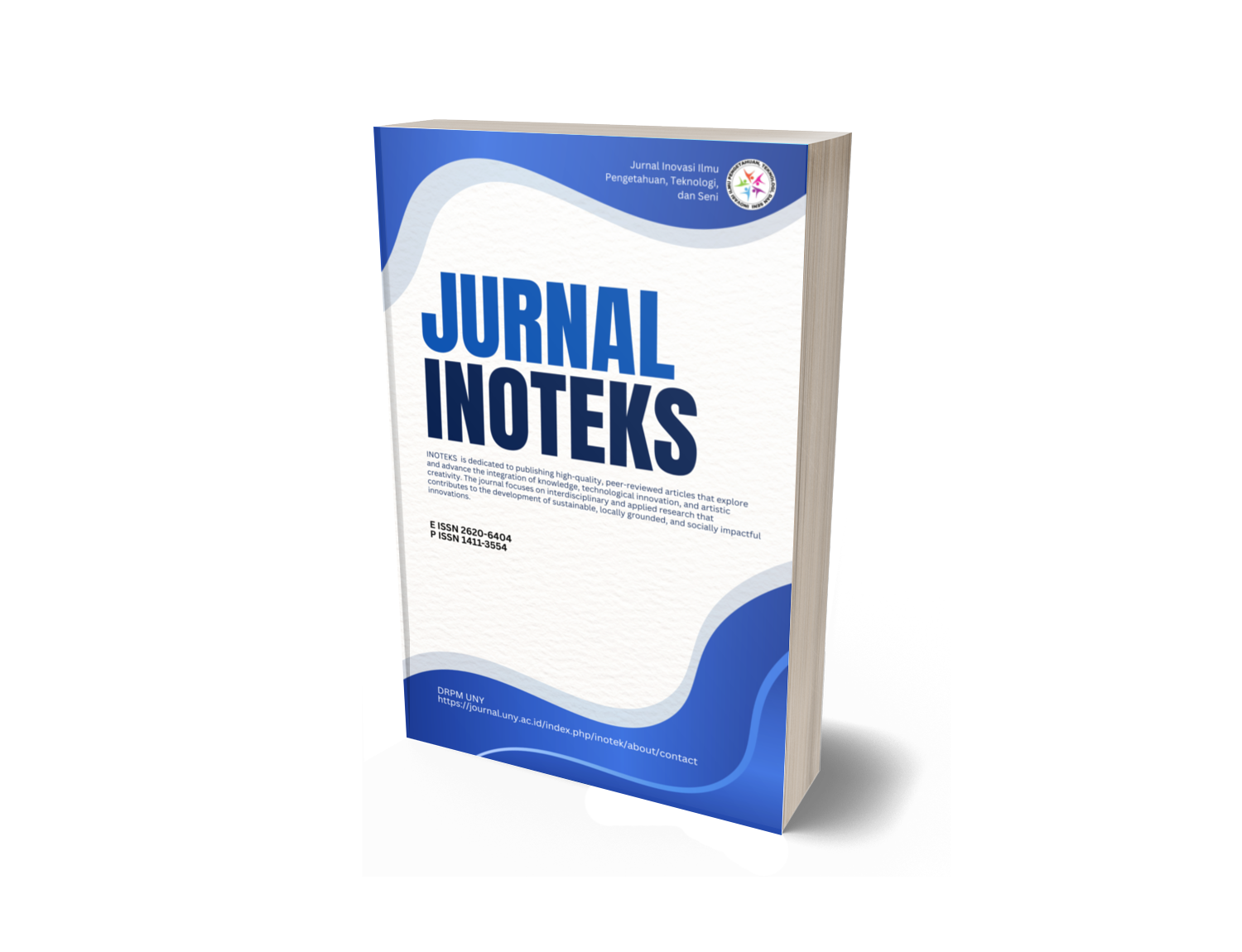PENGEMBANGAN PROBLEM SOLVING DAN SIKAP ILMIAH SISWA DENGAN BAHAN AJAR IPA BERPENDEKATAN AUTHENTIC INQUIRY LEARNING
DOI:
https://doi.org/10.21831/ino.v21i2.19225Abstract
The aims of this activity are: (1) to disseminate the results of research from a team of stewards on the development of learning materials authentic inquiry based learning to develop problem solving and scientific attitude; (2) to develop the skills of teachers in guiding students for doing investigation or inquiry; (3) to develop the skills of teachers in developing learning material with authentic inquiry approach; (4) to develop the skill of teachers in teaching with implementation of authentic inquiry leaning approach. The target participant of this activity is 26 teacher members of MGMP IPA SMP Magelang regency. This activity is done in three stages, including the stage of theoretical training, practical training phase and the evaluation phase. The methods used are: lecture, modeling, discussion, and workshop. The results showed that the overall activity of PPM activity has been successful in reaching the target activity. Most of the participants are already skilled in guiding student for doing inquiry. Most participants also been able to develop student worksheet based on authentic inquiry learning approach and half of student worksheets have contain of problem solving and scientific attitude development. Most of the group of participant can teaching science through the authentic inquiry approach very Good because most of the steps of authentic inquiry learning approach has be done by all group
References
Asa. 2011. Sains dan Matematika Kurang Diminati. Yogyakarta: Kedaulatan Rakyat.
Widowati, A., Nurohman, S., & Anjarsari, P. 2015. "Pengembangan Bahan Ajar IPA untuk Meningkatkan Kemampuan Problem Solving dan Sikap Ilmiah." Laporan Penelitian Dosen Yunior. Yogyakarta: FMIIPA, UNY.
Carin, A.A., & Sund, R.B. 1970. Teaching Modern Science. Ohio: Charles E. Merill Publishing Co
Chamber, D. 1991. "Instructional design for meaningful learning." Instructional Science. Netherlands: Kluwer Academic Pub.
Djohar. 2006. Pengembangan Pendidikan Nasional Menyongsong Masa Depan. Yogyakarta: CV. Grafika Indah.
Ergí¼l, R., ŞımÅŸeklı, Y., í‡aliÅŸ, S., í–zdılek, Z., Gí¶í§mení§elebı, Åž., & Åžanli, M. 2011. "The Effects of Inquiry-Based Science Teaching on Elementary School Students' Science Process Skills and
Science Attitudes." Bulgarian Journal of Science & Education Policy, 5(1).
Lombardi, M. 2007. Authentic Learning for 21st Century: An Overview. Diunduh dari: http://net.educause.edu/ir/library/ pdf/eli3009.pdf tanggal 5 Maret 2013.
Prokop, P., Tunnicliffe, S.D., Kubiatko, M., HornáÄková, A., & Usak, M. 2011. "The Role of Teacher in Students' Attitudes to and Achievement In Palaeontology." Energy Education Science Technology
Part B: Social and Educational Studies, 3(1), 29-45.
Reiter, S. 2015. "Meaningful Learning in Special Education Teaching and Learning Based on the Cycle of Internalized Learning: A Review." Open Journal of Social Sciences, 3, 103-111. Diunduh dari http://www.scirp.org/journal/jss http://dx.doi.org/10.4236/jss.2015.39016.
Published
How to Cite
Issue
Section
Citation Check
License
- Authors certify that the work reported here has not been published before and contains no materials the publication of which would violate any copyright or other personal or proprietary right of any person or entity.
- Authors transfer or license the copyright of publishing to Jurnal Civics: Media Kajian Kewarganegaraan to publish the article in any media format, to share, to disseminate, to index, and to maximize the impact of the article in any databases.
- Authors hereby agree to transfer a copyright for publishing to Jurnal Civics: Media Kajian Kewarganegaraanas a Publisher of the manuscript.
- Authors reserve the following:
- all proprietary rights other than copyright such as patent rights;
- the right to use all or part of this article in future works of our own such as in books and lectures;
- use for presentation in a meeting or conference and distributing copies to attendees;
- use for internal training by author's company;
- distribution to colleagues for their research use;
- use in a subsequent compilation of the author's works;
- inclusion in a thesis or dissertation;
- reuse of portions or extracts from the article in other works (with full acknowledgement of final article);
- preparation of derivative works (other than commercial purposes) (with full acknowledgement of final article); and
- voluntary posting on open web sites operated by author or author's institution for scholarly purposes, but it should follow the open access license of Creative Common CC BY-NC-SA License.








